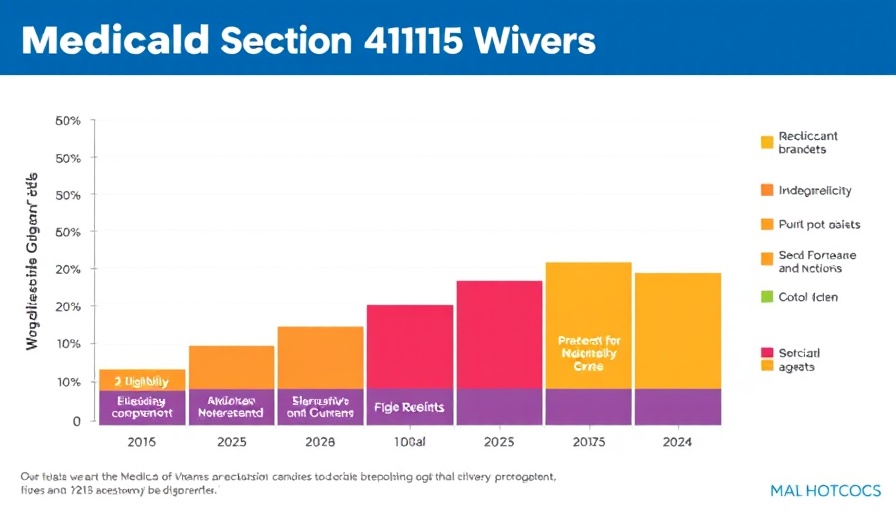
Understanding Section 1115 Medicaid Waivers: Flexibility for States
Section 1115 Medicaid demonstration waivers provide states with an essential opportunity to innovate and tailor their Medicaid programs beyond federal requirements. As states craft these waivers, they reflect both local needs and national priorities, allowing them to test new eligibility criteria, benefits, and approaches to healthcare delivery. Nearly every state utilizes at least one active waiver, underscoring the importance of flexibility in addressing diverse health-related cultural contexts.
Connecting the Dots: Why These Waivers Matter
For insured and uninsured citizens alike, understanding Section 1115 waivers is crucial because they can significantly shape access to healthcare services. Recent approvals focus on multi-year continuous eligibility for children, which aims to provide stable healthcare access vital during critical developmental years. These measures are not just bureaucratic maneuvers; they have real implications for families, as continuous coverage ensures that children get necessary preventive care, which can lead to healthier long-term outcomes.
The Future of Medicaid: Trends to Watch
The changing landscape of Medicaid under various administrations means that Section 1115 waivers may see different foci over time. With a growing emphasis on addressing health-related social needs (HRSN), there's a substantial push for initiatives that help those with housing instability and food insecurity. Such programs have been shown to lower healthcare costs while enhancing overall health outcomes in communities, making a compelling case for their expansion.
Diverse Perspectives: Challenges and Opportunities
While the potential of Section 1115 waivers is massive, they also come with challenges. Critics argue that flexibility can lead to disparities in coverage, particularly as states experiment with work requirements and eligibility restrictions. However, proponents assert that with the right controls and oversight, states can address their unique populations' needs effectively. The conversation around this topic is not just about policy; it reflects our values concerning healthcare and who deserves access.
Final Thoughts: What You Can Do
As a community member, staying informed about Medicaid and Section 1115 waivers will enable you to advocate effectively for changes that affect healthcare access in your state. Engaging with your local representatives about your healthcare experiences can support a more equitable system for everyone, encouraging policy changes that emphasize stability and coverage for all.
 Add Row
Add Row  Add
Add 




Write A Comment